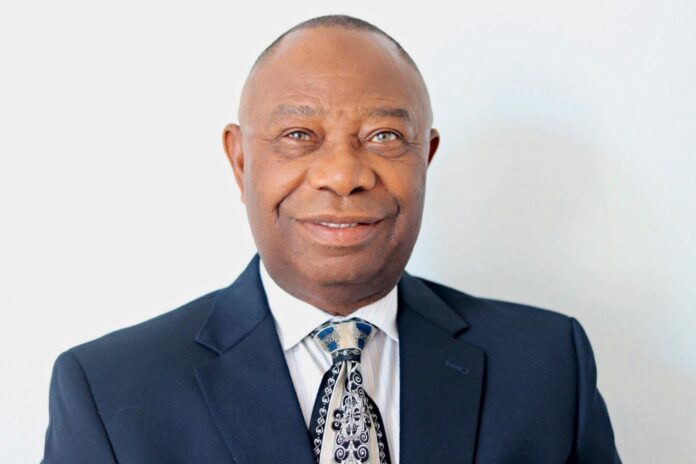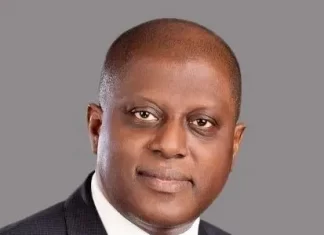Betrayal of African democracy: U.S. foreign policies and Africa’s struggle for freedom
By Emmanuel Ihim
In the grand theater of global politics, the United States has long cast itself as the guardian of democracy, championing ideals of human rights, accountability, and transparency. However, recent events in the African political landscape unveil a troubling contradiction between professed ideals and the policies enacted – a contradiction where self-interest all too often trumps noble principles. This pattern of supporting undemocratic regimes, failing to advocate for transparent elections, and displaying indifference to local laws has tarnished the U.S.’s reputation and stifled the democratic aspirations of millions across Africa. This self-centered approach, characterized by turning a blind eye to atrocities, supporting corrupt leaders, and avoiding accountability, has emerged as a significant catalyst for democratic regression on the African continent.
A Diplomacy of Convenience: Ignoring Atrocities
In the pursuit of its geopolitical interests, the United States has repeatedly exhibited selective attention to human rights violations and atrocities committed by African governments. The evidence is striking – reports of extrajudicial killings, dissent suppression, and electoral fraud often receive lukewarm responses or outright indifference from U.S. policymakers.
Take, for example, the tragic Toll Gate Saga in Lagos, Nigeria, where peaceful protesters were brutally massacred by the Nigerian military during former President Buhari’s government. The world anticipated a strong U.S. condemnation, but the response was measured, diluted by geopolitical considerations. This stark inconsistency between stated values and diplomatic actions erodes the credibility of the U.S. as a democracy and human rights champion, emboldening autocratic regimes to continue repression with impunity.
A Missed Milestone: Nigeria’s Eroded Democracy
The recent Nigerian presidential election represented a pivotal moment for democracy in Africa. The global community, particularly the United States, had a chance to insist on an election free from manipulation and corruption. However, the outcome was a disheartening betrayal of democratic ideals.
International observers widely disputed the election’s legitimacy, citing significant deviations from Nigeria’s Constitution, the Electoral Act, and the procedural guidelines of the Independent National Electoral Commission (INEC). Instead of standing for transparency and integrity, the U.S. government hastily embraced the election results, congratulating the declared winner while ignoring the glaring electoral irregularities.
READ ALSO: As Tinubu deploys propaganda and lies in governance
This U.S. endorsement not only undermined Nigeria’s constitutional framework but also left millions of Nigerians feeling abandoned and disillusioned. The very nation that had championed democratic values appeared to forsake them at a critical juncture.
Courting Corruption: Supporting Unscrupulous Leaders
Another facet of the United States’ self-centered foreign policy in Africa is its tendency to support leaders with questionable democratic credentials as long as they align with its geopolitical interests. The evidence is scattered across the continent, from cozy relationships with leaders implicated in corruption scandals to providing military aid to regimes notorious for authoritarianism.
Consider the case of Robert Mugabe of Zimbabwe, who consistently suppressed dissent, manipulated elections, and embezzled state funds. Despite international outcry, the U.S. maintained a strategic partnership, overlooking these transgressions in favor of maintaining a stable ally in a volatile region. This support sends a troubling message – that as long as a leader advances U.S. interests, their democratic shortcomings can be overlooked, undermining the very principles the U.S. purports to uphold. Mugabe’s regime, notorious for human rights abuses and rigged elections, saw the U.S. maintain diplomatic ties without leveraging its influence to encourage democratic reforms. This approach emboldened Mugabe’s oppressive tactics and fostered disillusionment among Zimbabwe’s citizens, ultimately leading to a coup that further destabilized the nation.
Dodging Accountability: Lack of Transparency in Foreign Dealings
Transparency and accountability are pillars of a thriving democracy. However, the United States’ foreign dealings in Africa often occur behind closed doors, away from public scrutiny. Financial assistance, military aid, and strategic partnerships are brokered with minimal transparency, leaving African citizens in the dark about the nature and impact of these arrangements. The lack of consequences for repressive actions emboldens autocratic regimes, eroding democratic institutions and stifling civil society.
Consider the controversial arms deal between the U.S. and the Egyptian regime. The lack of transparency surrounding the transaction raises questions about the extent to which such dealings align with democratic values. This opacity undermines the credibility of U.S. foreign policy and reinforces the narrative that self-interest trumps the principles of democracy and accountability. The evidence is clear – countries that receive unequivocal support from the U.S. often exhibit a downward spiral in democratic indicators. Freedom of the press, the rule of law, and electoral integrity all suffer in the wake of U.S. endorsement of leaders who prioritize their interests over their citizens’ well-being.
Conclusion: The Need for Principled Diplomacy
The contrasting narratives presented in this analysis underscore the profound impact the United States’ foreign policy can have on burgeoning democracies. By ignoring atrocities, supporting corrupt leaders, and evading accountability – by failing to uphold the principles it professes, the U.S. inadvertently fuels a cycle of democratic regression, posing significant risks and creating vacuums filled by coups and military takeovers. Moreover, this flawed approach sends a troubling message to the world – that convenience and realpolitik may trump justice and human rights.
The Way Forward: A Shift towards Genuine Partnership
To genuinely champion democracy in Africa, the United States must recalibrate its foreign policy approach. It must prioritize human rights and democratic values over short-term geopolitical gains. Concrete actions, such as prioritizing credible elections, accountable governance, applying diplomatic pressure on repressive regimes, and transparently addressing foreign dealings, can help realign U.S. policy with its proclaimed values.
In conclusion, the United States’ self-centered foreign policy in Africa has emerged as a significant driver of democratic regression. The evidence of ignored atrocities, support for corrupt leaders, and evaded accountability cannot be overlooked. For Africa to experience genuine democratic progress, the U.S. must reevaluate its foreign policy priorities, placing human rights and democratic values at the forefront of its engagements.
In a world yearning for moral leadership, the United States must rise to the occasion, embracing a foreign policy that reflects its core values – not just in words but in deeds. Only then can the dreams of democracy, so fervently sought by nations like Nigeria, Zimbabwe, Mali, Niger, Gabon, and a host of other African countries, become a reality rather than a cruel mirage.
- Emmanuel Ihim, Esq, founder of the Civil Society group, Diaspora Alliance, wrote in from the U.S.











